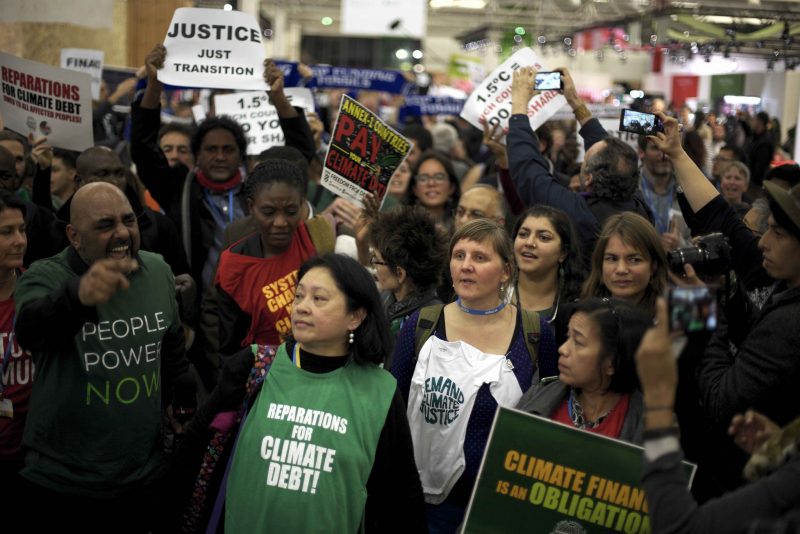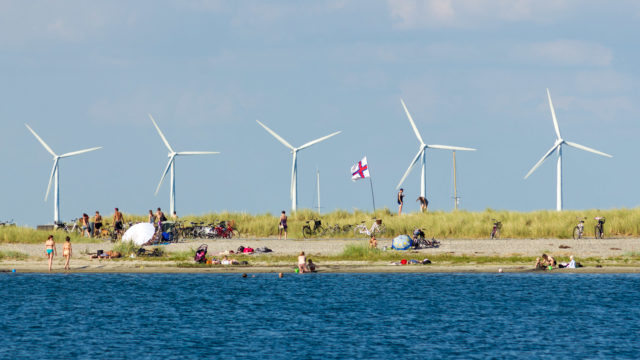Imagining the impossible
To change our economies we need new stories to guide how the world works. Are these new narratives finally emerging?

What happens when you put academics, activists, an army professional, marketing professionals, a management consultant, a writer, a film-maker and social scientists into a room for two days and ask them to develop the story of a better economic system? Last month the Green Economy Coalition teamed up our friends at the Wellbeing Economy Alliance and the Institute for Social Futures to do just that. Did we manage to crack a complete new meta-narrative to power economic reform, one as compelling as capitalism or religion? Err, no. But is a new story emerging? Yes.
Do stories matter?
In his book Sapiens, Yuval Noah Harari makes a powerful case that it is stories, not genes, that have enabled man to progress so much further than other species. In contrast to say, ants, gorillas or dolphins, all of whom have sophisticated ways of communicating, humans can construct ‘collective fictions’ that allow us to cooperate effectively and flexibly in large groups. Any high-level human cooperation – be it a modern state, a legal system or a limited company - is rooted in shared myths that only exist in people’s imaginations. If we collectively decide to alter those myths, then we can alter behaviour relatively quickly. For example, we collectively decided that slavery was no longer acceptable and that women should have the same rights as men.
I liked how Rebecca Braun, Director for the Institute of Social Futures put it: “narrative enables us to imagine the impossible”. As a green economy advocate, one of the unhappy perks of my job is that I get to read a lot of the science as to how the planet is faring. Things are not looking good. To restore nature to a point where it can continue to function, let alone flourish, will require changes on a breath-taking scale: new energy, food, and transport systems; different ways to measure progress; a rewired financial system; a radical new social contract for people. We urgently need new narratives to imagine the impossible.
But values matter too
But ‘collective fictions’ are not easy to establish. As a result of our global dialogue series, the GEC has learned that the prospect of greener futures can feel abstract and technocratic to many citizens - evoking visions of whirring wind turbines or electric vehicles – and do not always resonate with the needs of people. By contrast the concept of wellbeing appears to resonate more widely, evoking feelings of stronger relationships with our friends and families, healthier communities and our mental and physical health.
“ If the prospect of ‘freedom’ as promised by the story of capitalism has defined the last century, perhaps it is now time to bring our economies home?”
Yet, as we started to test some of the founding building blocks of a wellbeing economy within the group, we discovered that not all of those principles resonated. In simple terms, that’s because we all have different values, which mean that we interpret words, images and memes in very different ways. To take a crude example, for some people the golden arches of McDonalds may represent the ugly side of capitalism, for others they mean opportunity and modernity, and a tasty and affordable burger.
So, if everyone has different values then how is it that some narratives have proved so successful? Are there any ‘universal values’ that speak to many rather than the few? I learned from one participant, that according to social psychological research across different countries there are indeed five principles that appeal across ethic groups: Care/harm; Fairness/cheating; Loyalty/betrayal; Authority/subversion; Sanctity/degradation. The first two (care and fairness) tend to resonate with everyone, while all five tend to resonate with people aligned to political right.
Can home challenge freedom?
Picking up on the value of ‘care’, one of the storylines we tested together was around the idea of home and homecoming. The feeling of being home seemed to resonate widely; for many people it says safety, care, and nurture. And home doesn’t necessarily mean a front door - I have felt at home in countries on the other side of the world or with people I've only just met. Homecoming is one of the cornerstones of story-telling in literature from the Iliad to war films. If the prospect of ‘freedom’ as promised by the story of capitalism has defined the last century, perhaps it is now time to bring our economies home?

Certainly, our GEC dialogue series have shown that the economy is making many citizens feel “home-less”. People feel vulnerable to the forces of distant financial markets and powerless against global trends and norms. We see a new yearning to root the economy back into local communities and realities. Local campaigns to “bring back our high street” and “buy local” or some of the global movements to “Reclaim our Economy” are resonating far and wide. There’s also compelling evidence to show that where economies are more locally-rooted they prove more resilient. Work by the Global Alliance for Banking on Values has shown that local community banks weathered the financial crash more easily than the “too big to fail” institutions.
We are all global citizens
But, then again, home is also highly political. Donald Trump is busy trying to build a big wall to keep people out of his “home”, and the UK’s decision to leave the EU speaks to some similar sentiments. Turning away from globalisation is not the answer. Rather, home needs to feel as global as it does local – our planet as well as our neighbourhood is our home. We are all global citizens.
In the last few months that sense of global citizenship has become more palpable. The tens of thousands of school children coming together around the Fridays For Future movement feels like a testament to a new generation of global citizenry. Reading their placards, listening to their speeches, for the first time I’m beginning to feel that the impossible is becoming imaginable. A new story of economic reform is emerging. And we’re all part of that story.
- Emily Benson
Over the next few months we’re going to be continuing to bring people together from different geographies, cultures, disciplines and political leanings to work on narratives of transition. We’d love to hear from you if you’d like to be involved.
Photo by Dani Aláez on Unsplash


